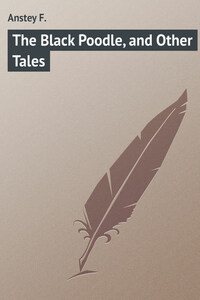I have set myself the task of relating in the course of this story, without suppressing or altering a single detail, the most painful and humiliating episode in my life.
I do this, not because it will give me the least pleasure, but simply because it affords me an opportunity of extenuating myself which has hitherto been wholly denied to me.
As a general rule I am quite aware that to publish a lengthy explanation of one's conduct in any questionable transaction is not the best means of recovering a lost reputation; but in my own case there is one to whom I shall never more be permitted to justify myself by word of mouth – even if I found myself able to attempt it. And as she could not possibly think worse of me than she does at present, I write this, knowing it can do me no harm, and faintly hoping that it may come to her notice and suggest a doubt whether I am quite so unscrupulous a villain, so consummate a hypocrite, as I have been forced to appear in her eyes.
The bare chance of such a result makes me perfectly indifferent to all else: I cheerfully expose to the derision of the whole reading world the story of my weakness and my shame, since by doing so I may possibly rehabilitate myself somewhat in the good opinion of one person.
Having said so much, I will begin my confession without further delay: —
My name is Algernon Weatherhead, and I may add that I am in one of the Government departments; that I am an only son, and live at home with my mother.
We had had a house at Hammersmith until just before the period covered by this history, when, our lease expiring, my mother decided that my health required country air at the close of the day, and so we took a 'desirable villa residence' on one of the many new building estates which have lately sprung up in such profusion in the home counties.
We have called it 'Wistaria Villa.' It is a pretty little place, the last of a row of detached villas, each with its tiny rustic carriage gate and gravel sweep in front, and lawn enough for a tennis court behind, which lines the road leading over the hill to the railway station.
I could certainly have wished that our landlord, shortly after giving us the agreement, could have found some other place to hang himself in than one of our attics, for the consequence was that a housemaid left us in violent hysterics about every two months, having learnt the tragedy from the tradespeople, and naturally 'seen a somethink' immediately afterwards.
Still it is a pleasant house, and I can now almost forgive the landlord for what I shall always consider an act of gross selfishness on his part.
In the country, even so near town, a next-door neighbour is something more than a mere numeral; he is a possible acquaintance, who will at least consider a new-comer as worth the experiment of a call. I soon knew that 'Shuturgarden,' the next house to our own, was occupied by a Colonel Currie, a retired Indian officer; and often, as across the low boundary wall I caught a glimpse of a graceful girlish figure flitting about amongst the rose-bushes in the neighbouring garden, I would lose myself in pleasant anticipations of a time not far distant when the wall which separated us would be (metaphorically) levelled.
I remember – ah, how vividly! – the thrill of excitement with which I heard from my mother on returning from town one evening that the Curries had called, and seemed disposed to be all that was neighbourly and kind.
I remember, too, the Sunday afternoon on which I returned their call – alone, as my mother had already done so during the week. I was standing on the steps of the Colonel's villa waiting for the door to open when I was startled by a furious snarling and yapping behind, and, looking round, discovered a large poodle in the act of making for my legs.
He was a coal-black poodle, with half of his right ear gone, and absurd little thick moustaches at the end of his nose; he was shaved in the sham-lion fashion, which is considered, for some mysterious reason, to improve a poodle, but the barber had left sundry little tufts of hair which studded his haunches capriciously.
I could not help being reminded, as I looked at him, of another black poodle which Faust entertained for a short time, with unhappy results, and I thought that a very moderate degree of incantation would be enough to bring the fiend out of this brute.
He made me intensely uncomfortable, for I am of a slightly nervous temperament, with a constitutional horror of dogs and a liability to attacks of diffidence on performing the ordinary social rites under the most favourable conditions, and certainly the consciousness that a strange and apparently savage dog was engaged in worrying the heels of my boots was the reverse of reassuring.














